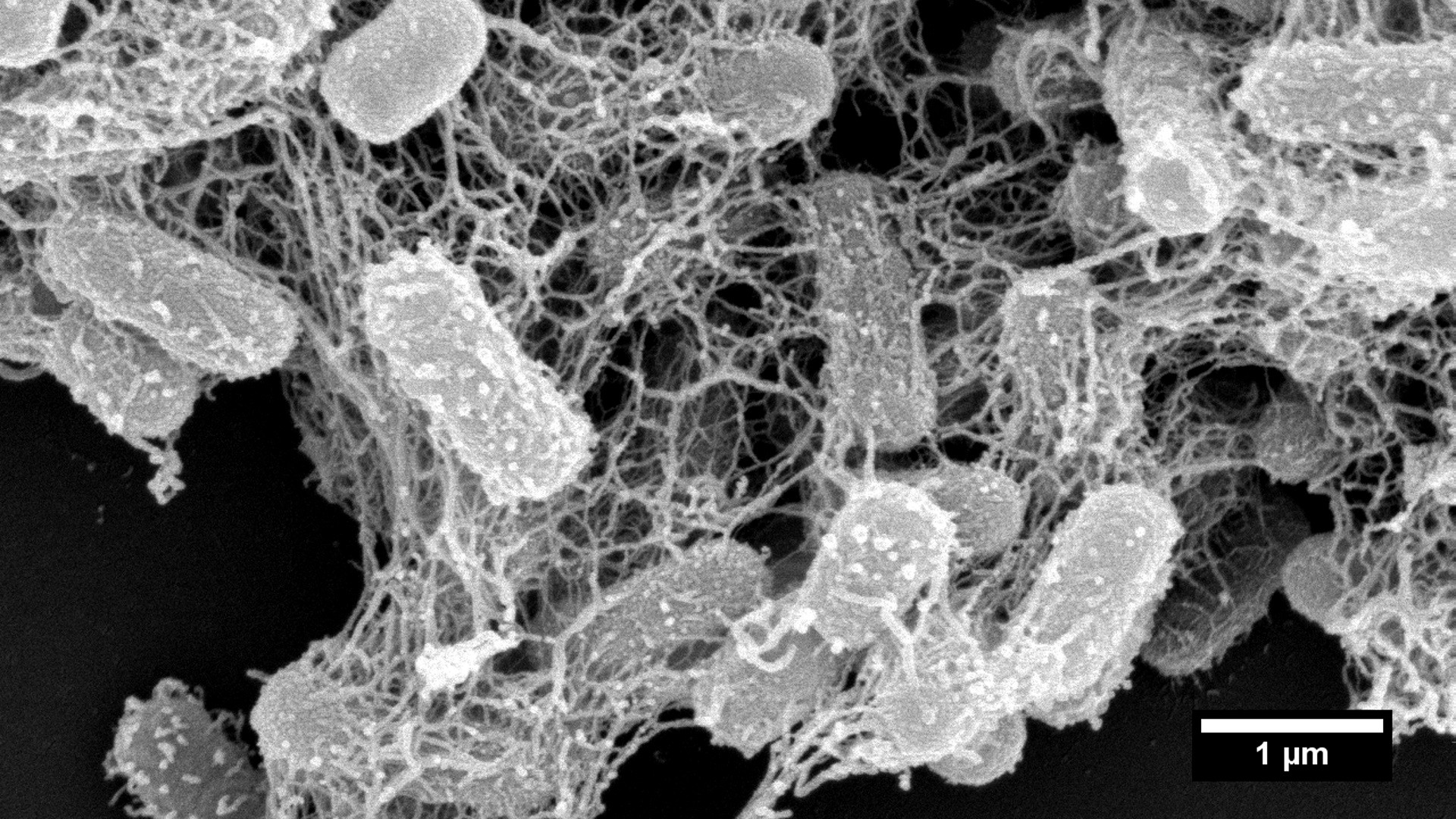Trapping and killing superbugs with novel peptide ‘nanonets’
Antimicrobial resistance will kill more people by 2050 than cancer, according to recent assessments by experts.
A multi-faceted approach is therefore needed to tackle this growing public health crisis, which has been described as a slow-burn pandemic. While public education is key to preventing the misuse and overuse of antimicrobials, investments in research can help us to develop new tools to characterise – and combat – this increasingly complex issue.
Recently, NUS researchers have developed ‘nanonets' that can trap and kill bacteria strains resistant even to last-resort antibiotics like colistin.
The nanonets are made from self-assembling peptides that can specifically target the membrane components unique to bacteria. They also resist degradation by trypsin, a digestive enzyme. This specificity and robustness had not been previously achieved in the field.
Lead researcher Associate Professor Rachel Ee from the NUS Department of Pharmacy said, “Our peptide-based nanonets have shown potential as an alternative anti-infective strategy to address antibiotic resistance. Our next challenge is to optimise the design for clinical application in humans.”
The work was performed in collaboration with Associate Professor Rajamani Lakshminarayanan, who holds joint appointments with the NUS Department of Pharmacy and the Singapore Eye Research Institute. The findings were first published in the print edition of the scientific journal Advanced Functional Materials on 26 Jan 2023.
Read more about it here.



